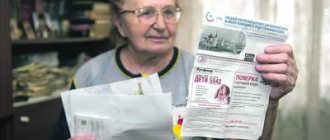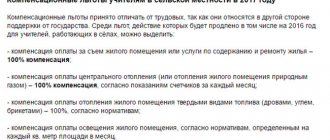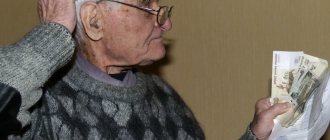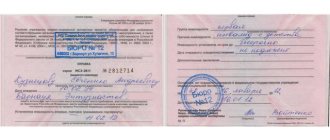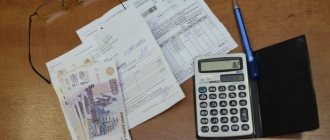FEDERAL BENEFITS FOR PENSIONERS
Citizens belonging to preferential categories have the right to choose which form of receiving government support suits them best. The legislation provides for the replacement of non-material assistance with a monthly cash payment (MCV), transferred simultaneously with the pension.
At the federal level, pensioners are entitled to the following privileges:
- Compensation of payments for housing and communal services. The subsidy is provided provided that the cost of utility bills is more than 10% of the total family income. Citizens over 70 years of age can also take advantage of additional support in the form of a 50% discount on major repairs. Muscovites who have crossed the 80-year mark are exempt from this payment in full.
- Monthly payments established for certain categories of citizens: participants and veterans of military operations, defenders of Moscow and heroes of the Second World War.
- Benefits for the purchase of medicines, according to the approved list of medicines subject to compensation.
- Tax deductions when purchasing a home.
- Exemption from property tax. Payments are not charged if a citizen owns a private house, apartment, creative workshop, outbuildings with an area of no more than 50 m², as well as a parking space or garage. The benefit is valid only for one property of each type. For example, a pensioner has an apartment and three garages - tax breaks will apply to residential premises and one garage.
- Exemption from NDF. Only certain types of income are not subject to tax. These can be various social benefits, pensions, gifts from individual entrepreneurs and organizations. Also, tax deductions do not apply to trips to a sanatorium paid for by a former employer and the provision of financial assistance to them. As for gifts, it all depends on how much the gift costs: its cost should not exceed 4 thousand per calendar year. In other cases, the pensioner will have to pay 13% tax on the remaining amount.
- Providing additional leave at your own expense. Elderly people who continue to work can count on additional leave without pay. Its duration is determined by the category of the pensioner. Persons who have retired due to age are entitled to up to 14 calendar days, WWII participants - up to 35 days, disabled people - up to 60 days a year.
- Prosthetics. At the state level, such benefits are provided for pensioners who have received the status of Hero of Labor of the Russian Federation, Hero of Socialist Labor, as well as a full Cavalier of the Order of Labor Glory. The same privilege can be used by military pensioners who served for more than 20 years and resigned due to staff reduction, health reasons, reaching a certain age, or who served for more than 25 years and were dismissed in 2021 for any reason.
Registration at the place of stay (in particular temporary registration)
Citizens who arrived for temporary residence (on a visit, at a dacha) for a period of more than 90 days must, after the expiration of the above period, temporarily register at the place of stay (namely, register).
To do this, they will have to contact certain officials who are responsible for registration and submit the necessary documents:
- This is a passport (or a document replacing it).
- This is an application (in the prescribed form) for registration at the place of residence.
- this is a document (the main basis for temporary residence), for example, a rental agreement (or sublease), social tenancy of a certain residential premises, or an application from the person who provides the citizen with residential premises.
This provision remains unchanged. The novelty, however, is different: now, in order to inform the necessary authorities about your arrival, it is not at all necessary to personally come to a certain territorial body of the FMS or to the local administration; it will be enough to send a notification by mail or via the Internet.
Registration of citizens at the place of their stay in residential premises, however, which is not their permanent place of residence, is carried out, as a rule, for a period determined by mutual agreement. This is an agreement with tenants, as well as all family members currently living with them (even those temporarily absent, for example, if they live in various municipal or state housing buildings). This is an agreement with the owners of residential premises.
This is an agreement with the boards of housing construction or housing cooperatives, when members of cooperatives will not be the owners of these residential premises.
As a rule, the owner of an apartment or house in the village where you come on vacation needs to contact a special registration authority. These authorities, within 3 days from the date of receipt of all documents, register the data of citizens, after which they issue them a certificate where registration at the place of stay is recorded.
In addition, at the request of a citizen, a certificate of registration at their place of residence by the registration authority can be sent by mail to the address of a specific residential premises, which is indicated in the application for this registration at their place of residence. The owner (that is, the tenant) of the residential premises is sent a mandatory notification of the registration of this citizen within 3 days.
As for the registration of minor children at the place of residence of their parents (adoptive parents or guardians), it is carried out regardless of the consent of the tenants or owners of the premises.
A citizen who comes to rest in a sanatorium, boarding house, or hospital is registered by the administration of these institutions on the basis of documents that prove his identity. Moreover, without any deregistration of a particular citizen already at his place of residence (therefore this is a temporary registration).
SUPPLEMENT FOR WORKING PENSIONERS
A certain category of such citizens receives additional compensation in the amount of 19.5 thousand rubles. It can be:
- persons of retirement age who work in the field of housing and communal services, holding positions as janitors and cleaners;
- public sector employees working in government organizations;
- disabled people of groups I and II;
- personnel of the Joint Stock Company "Wardrobe Service Plant";
- participants and disabled people of the Great Patriotic War.
Benefits for Muscovites 2020
From January 1, the retirement age for men will increase from 60 to 65 years, for women - from 55 to 60 years. However, the changes will not occur simultaneously, but there will be a so-called transition period that will last up to a year. This means that this year men will retire at the age of 61 and women will retire at the age of 62 and 57, respectively, and so on.
At the beginning of the year, the cost of cold and hot water, sanitation and heating in Moscow will increase by 1.7 percent. The cost of cold water will increase to 38.7 rubles per cubic meter, drainage - 27.47 rubles per cubic meter, hot water - .72 rubles per cubic meter, heating - to .59 rubles per Gcal.
SOCIAL CARD OF MUSCOVITE
Residents of the metropolis who have reached retirement age in 2021 will receive a Muscovite social card, which can be used as follows:
- discount on travel on municipal transport;
- payment of housing and communal services, as well as making other payments without commission fees;
- discounts up to 30% in the main part of pharmacies and supermarkets in the metropolis;
- free provision of medicines to certain categories of citizens.
A bank account is linked to the Muscovite card, which allows you to use it to receive various payments. The card balance is indexed by 4% per year. If necessary, it can replace a compulsory health insurance policy.
Benefits for Muscovites 2020 when buying an apartment
A special place among beneficiaries is occupied by residents of Moscow who need specialized housing based on the conclusion of medical institutions. In this case, the right to receive it extends to people suffering from diseases of the musculoskeletal system, disabled people, as well as families with disabled children who require special living conditions.
We recommend reading: Chernobyl Benefit Certificate in Moscow 2020
The list of benefits for pensioners in Moscow in 2020 includes the Luzhkov bonus. Obtaining it is associated with some difficulties, since the amount of assistance is tied to the value of the social standard of Moscow and the PM. Pensioners who have lived for at least 10 years in the capital with low incomes receive an additional payment up to the social standard adopted for this period, which is 14,500 rubles for 2020. If a pensioner has lived in Moscow for less than 10 years, then he can only claim an additional payment up to PM, the amount of which is smaller and amounts to 11,560 rubles.
ONE TIME PAYMENTS IN CONNECTION WITH CERTAIN EVENTS
The capital authorities provide another type of social assistance for pensioners - one-time payments dedicated to significant events in their personal lives or memorable dates and public holidays.
Type of compensation/Amount, rubles
- For a wedding anniversary
50 years – 21,200
55, 60 years old – 26,400
65.70 years – 31,680
- In connection with the celebration of Victory Day and other significant dates in Moscow or the Russian Federation
10 – 25 thousand, depending on the category of pensioner
What social payments are due to Moscow residents in 2020?
Moscow, January 20, 2020. /LIVE24/. The New Year brings significant changes to Moscow. Including new benefits for the population. Read about what payments Muscovites are entitled to in 2020 in the LIVE24 material.
It’s worth starting with the fact that from January 1, 2020, basic payments for pensioners, families with children, orphans and other preferential categories of citizens were increased by 5.6%. In addition, scholarships for students of colleges and universities that are part of the education system of the Moscow region were indexed by 3.7%.
How much will pensioners be paid?
Starting this year, an increase in pensions is expected in the amount of 2,000 rubles; these funds will form the city’s social standard for the purpose of determining social benefits for pensions. If the average pension last year was 17,500 rubles, then this year it will be 19,500 rubles. Also, a monthly pension supplement in the amount of 1,584 rubles is due to older persons who were born between January 1, 1928 and September 3, 1945.
They haven’t forgotten about the region’s long-livers – those who reach the 100-year mark this year will receive a one-time payment of 26,400 rubles, which is 1,400 rubles more than in 2019. Also, 15,840 rubles will be paid to centenarians aged 101 years and older.
WWII participants and disabled people will receive a monthly increase of 2,212 rubles to compensate for the cost of food, home front workers will receive an additional payment of 1,584 rubles, and participants in the defense of Moscow will receive an additional payment of 8,448 rubles every month.
How much will families with children be paid?
For the first child - 5,808 rubles, for the second and subsequent ones - 15,312 rubles, for 3 or more children at the same time - 52,800 rubles. It is worth noting that payments are provided as a one-time payment to reimburse expenses for the birth or adoption of a child.
How much will low-income families receive?
Families of single mothers or fathers, conscripted military personnel and families where one of the parents evades paying child support will receive monthly benefits for children from 0 to 3 years old - 15,840 rubles, and for children from 3 to 18 years old - 6,336 rubles. Other low-income families also receive payments: for children aged 0 to 3 years – 10,650 rubles, and for children aged 3 to 18 years – 4,224 rubles.
How much will they pay to families of disabled people and disabled children?
A person who is caring for a disabled child or a disabled child under the age of 23 is entitled to a monthly payment in the amount of 12,672 rubles. For a child under the age of 18, non-working parents who are disabled people of the first or second group are also entitled to a monthly payment of 12,672 rubles.
How much will they pay to large families?
Large families are entitled to monthly payments to reimburse expenses due to the rising cost of living with children 3-4 years old - 1,268 rubles, with 5 or more children - 1,584 rubles. Also, monthly payments will be provided to reimburse expenses for housing, premises and utilities for families with 3-4 children - 1,103 rubles, with 5 or more children - 2,205 rubles.
In addition, a one-time payment in the amount of 211,200 rubles is provided to parents or adoptive parents who have been awarded the Honorary Badge “Parental Glory of the City of Moscow.” By the way, last year this amount was 200,000 rubles.
How much will students of colleges and universities be paid?
This year, students studying in secondary vocational education programs will receive a monthly stipend in the amount of 618 rubles, and in higher education programs - 1,701 rubles.
Scholarships for graduate students and graduate student trainees will increase: in areas of training determined by the Ministry of Education and Science of the Russian Federation - 8,040 rubles, in other areas and in assistantship internship programs - 3,349 rubles.
SUMMING UP
- Senior citizens living in Moscow enjoy a number of privileges established by legislative acts of the Federation and regions.
- Pensioners who refuse to receive social assistance in non-material form can count on monetary compensation.
- Upon retirement, citizens receive a social card. This is a single document used when paying for utilities, receiving various social benefits, and also as a compulsory medical insurance policy.
When preparing the publication, the source https://www.kleo.ru/ was used.
Good health to you and
See you again on the website 9111.ru!
About temporary registration in a private house
This case differs from all those described above in that in order to temporarily register in a private house, the applicant is not required by law to be deregistered at his place of permanent residence. Moreover, completing the appropriate documentation only makes sense if the citizen intends to live at the new address for a long period of time (that is, longer than 90 days).
How much will the registration procedure itself differ for this case? Actually, not much. To obtain temporary registration in a private house, the applicant will have to submit the following documents to the local FMS office:
- passport of the citizen moving in;
- homeowner's passport;
- arrival address sheet;
- for occupancy, signed by all other residents of a private house;
- corresponding to the occupancy, written by the actual owner of the residential premises in strict accordance with the norms established by law.
Is it possible to register at the dacha? Look for answers in the video:
Benefits for Muscovites 2020
If legal entities and individual entrepreneurs are engaged in the sale of goods and services, the tax rate will be 6 percent. At the same time, they are exempt from paying income tax and VAT. Self-employed people whose income does not exceed thousands of rubles per month or 2.4 million rubles per year can take part in the experiment. You can pay tax in one click - to do this, you need to download the “My Tax” application, link a bank card to it and go through biometric identification.
We recommend reading: Law on garage cooperatives in 2020
Starting from January, the cost of housing services for Muscovites will also rise. The tariff for the maintenance of residential premises will increase by an average of 1.9 rubles. The increase in the contribution for major repairs will be 1.19 rubles. Preferential rent of residential premises will rise in price by 35 kopecks. The cost of actual rental of residential premises will increase by 2.11 rubles, commercial rental - by 1.38 rubles, rental in the housing stock related to non-subsidized houses - by 2.82 rubles.
